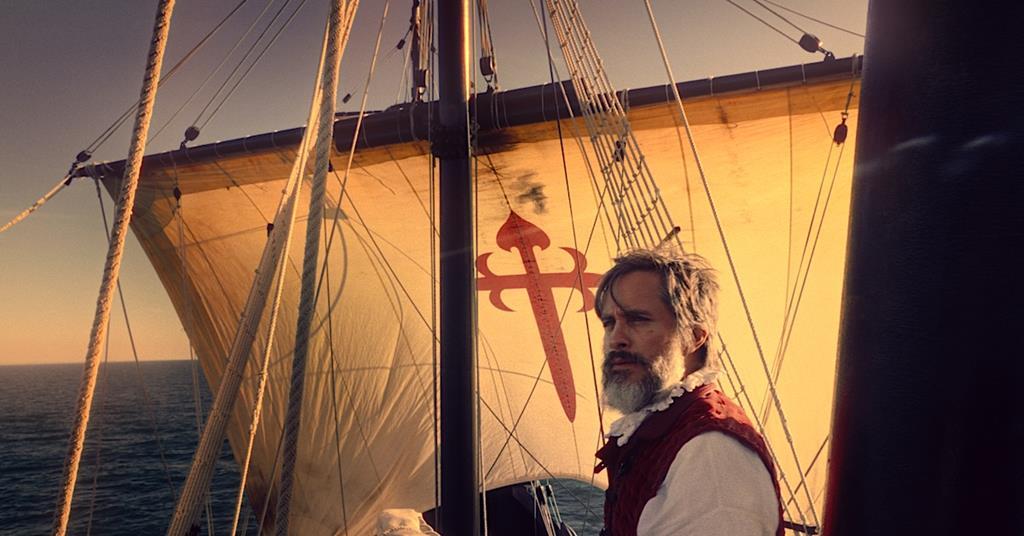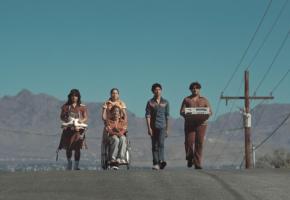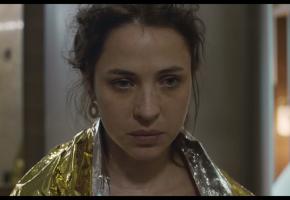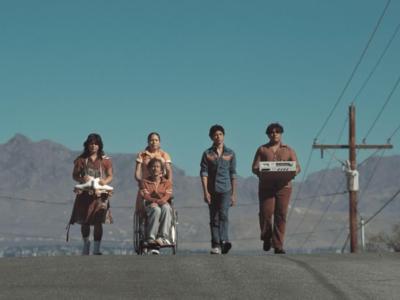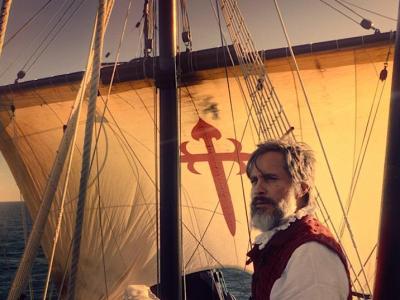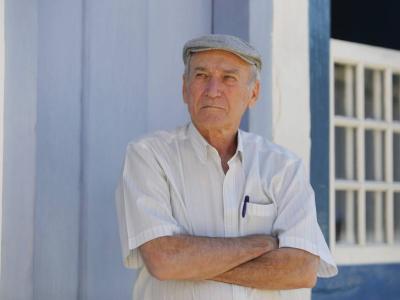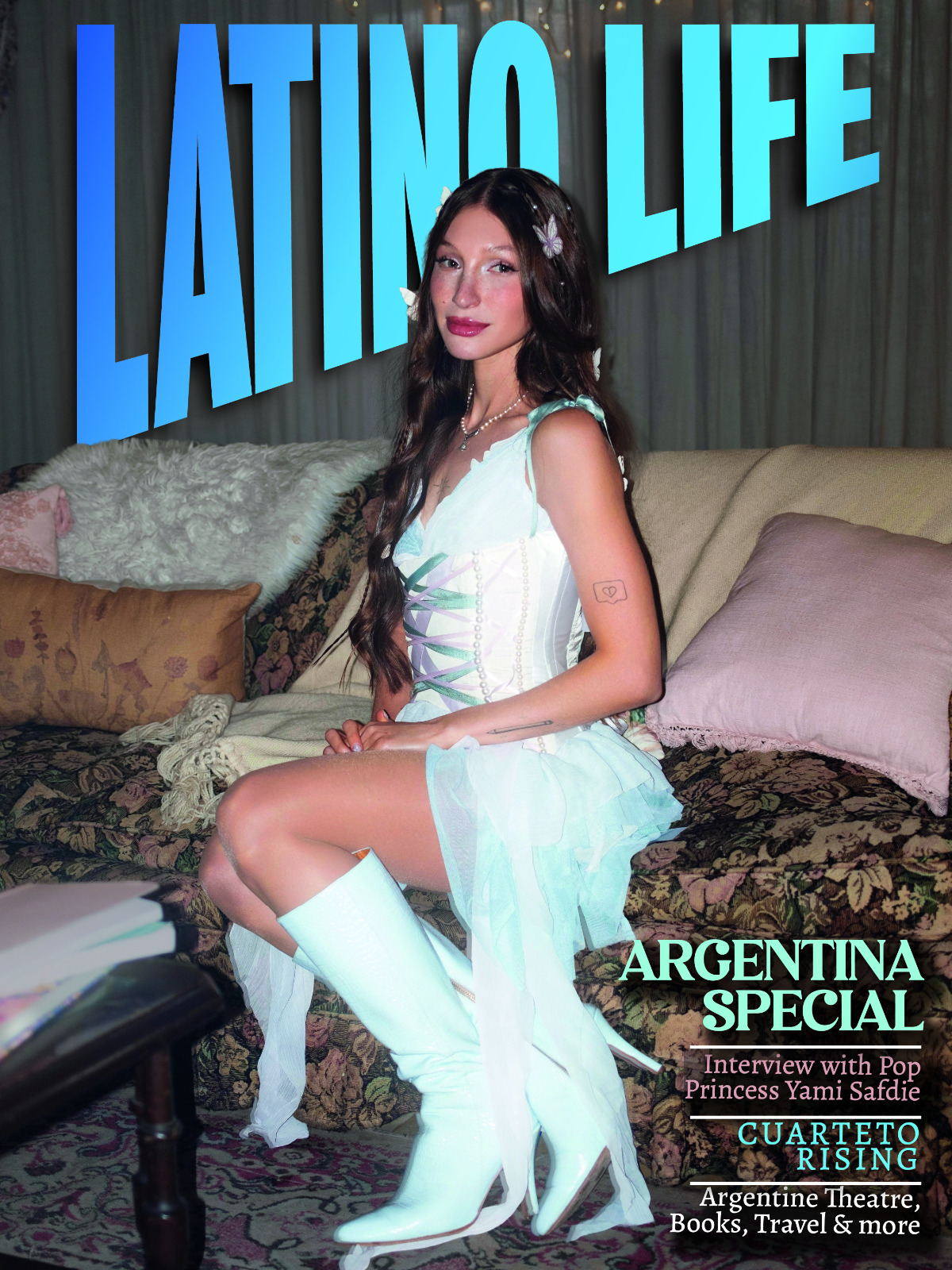Gaël García Bernal as Fernando Magellan
Ferdinand Magellan had already participated in an earlier expedition to capture Malacca in 1511, led by Afonso de Albuquerque (Roger Alan Koza). There he is injured and develops a limp that remains with him, and, significantly, he buys a slave whom he calls Enrique, who he takes back to Portugal.
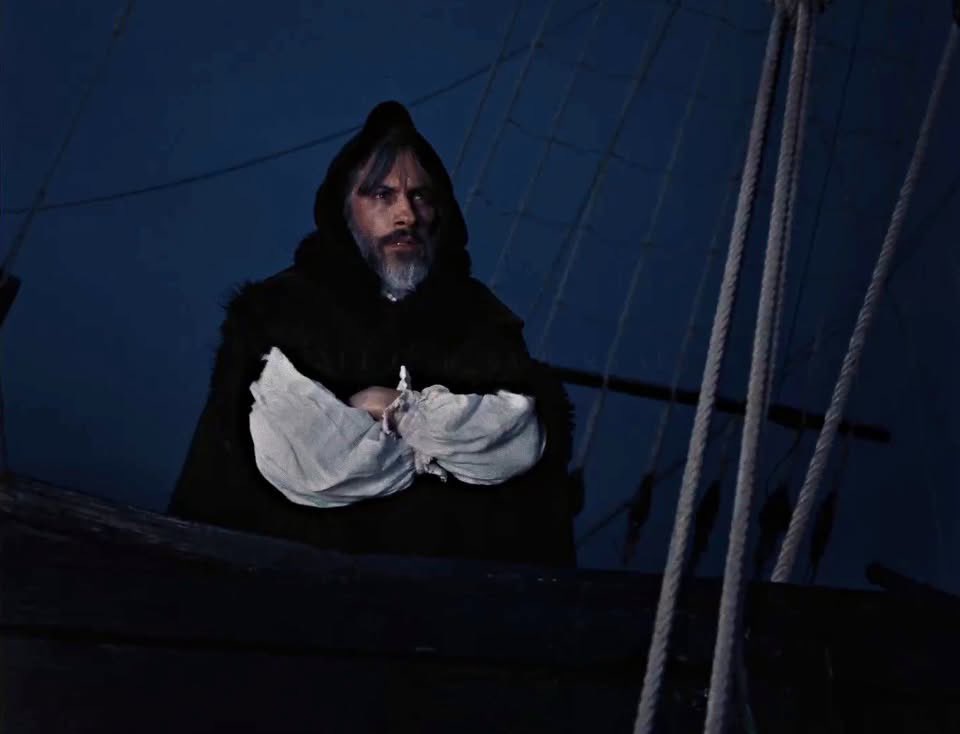
Gaël García Bernal freezing as they reach the Straits of Magellan
Having finally secured finance from King Charles I of Spain (having had his expedition plans rejected by King Manuel I of Portugal, a five-ship fleet depart from Cádiz in 1519 led by Magellan. Despite mutinies, disease and over 100 men lost on the way, they eventually succeed in becoming the first Europeans to discover a western route, via the Straits of Magellan, a watery passage just above the island of Tierra del Fuego and reach the vast expanse of the Pacific Ocean, also so named by Ferdinand himself. After crossing it, and just as they are at their wit’s end, they come across the Indonesian Spice Island of Cebu in 1521. The western route has been found but at what cost?
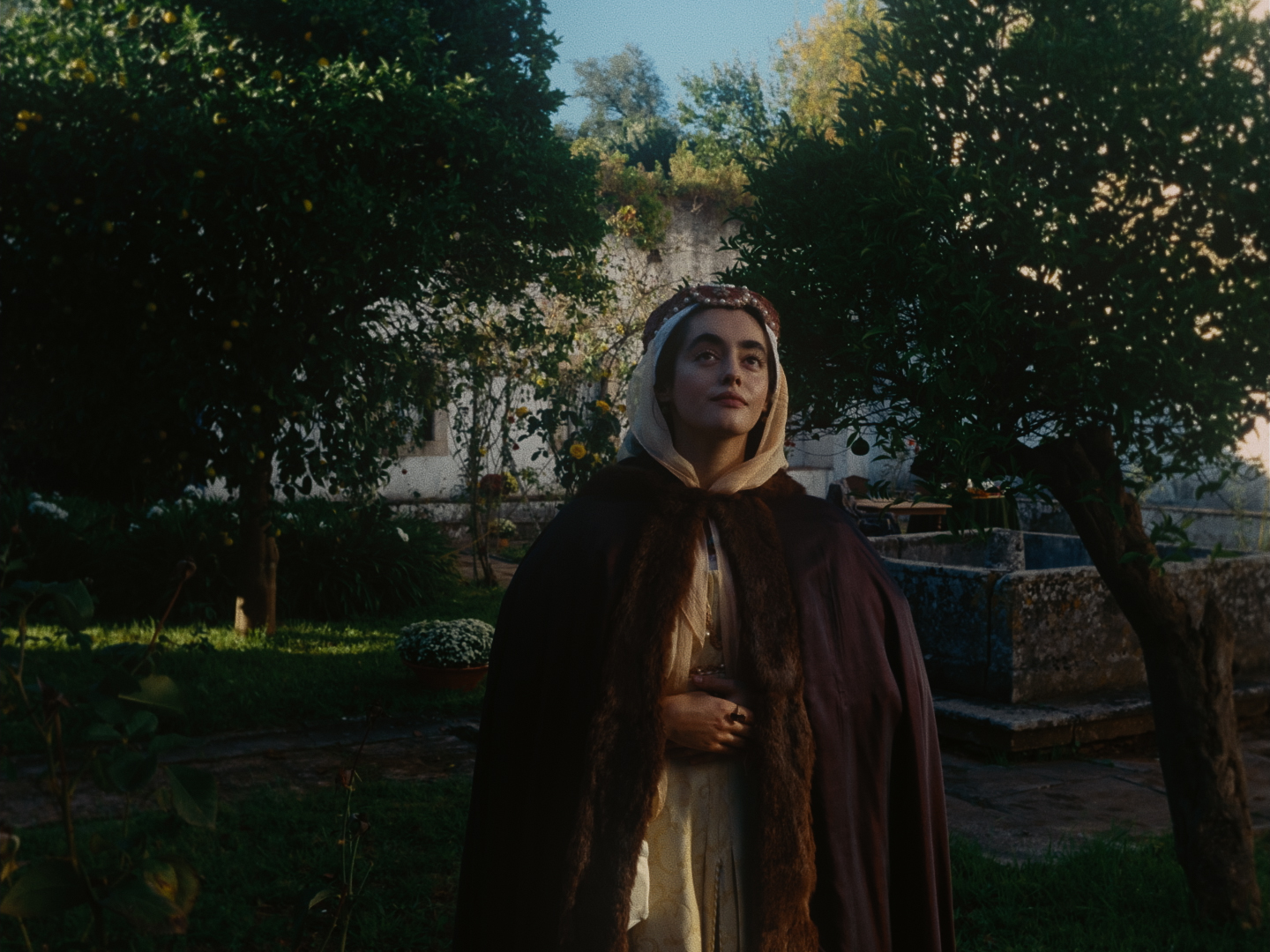
Ângela Azevedo as Beatríz
Selected to represent the Philippines at the 98th Academy Awards. ‘Magellan’ is an epic tale. The sets and production design (by Diaz himself) are outstanding, even if the village and the villagers on Malacca, Malaysia, and those on Cebu, Indonesia, appear to be one and the same, which is confusing. The galleon is truly magnificent. But again, it is disturbing that the sea never appears to move, implying that this galleon never actually reaches the high seas.
Could a journey from Cádiz, across the Atlantic Ocean, past Patagonia and the Straits of Magellan into the Pacific, never encounter any swells, wind or storms at sea? This gives the whole production an ethereal, even a theatrical feel. Yet, there is some power in that, however, as Diaz has a knack of using silence selectively, creating an impact all of its own. The devastating boredom of life in such a vessel for what turns out to be years at sea without sight of land, also leads Magellan to have to administer truly shockingly brutal punishments for sodomy and mutiny, all in an effort to keep his dream to open a new route, alive.
Writer /Director/DOP/ Editor Lav Diaz is a renowned Filipino film maker born in 1958 in Columbio, Cotabato. When the area was overrun by violence between Muslim armed groups and the government, the family moved to Tacurong. Having started out as a film critic, once he got into making films, there was no stopping him and now has a host of successful and critically- acclaimed films under his belt that have carried away a large number of prestigious awards, including a Golden Lion in 2016 for “The woman Who left,” and the Silver Bear for “A Lullaby to the Sorrowful Mystery” to name a couple.
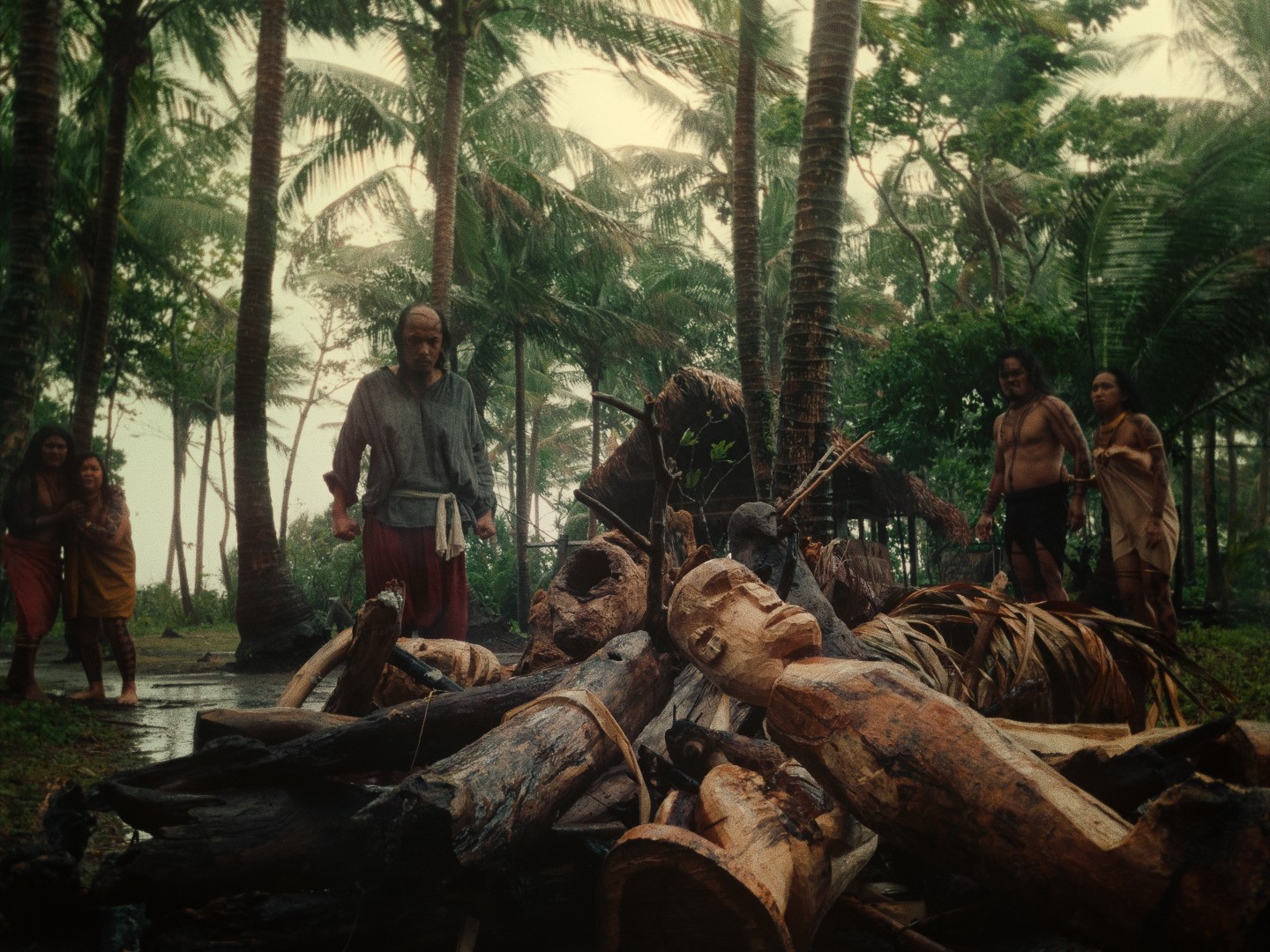
Burning of the effigies
Known for his style of slow cinema, Diaz holds onto scenes that come across as carefully-crafted tableau. The cumulative effect however, is that the narrative becomes hard to follow. “Magellan” is considered by many to be a ‘blockbuster’, and it is certainly more accessible that some of his other films. However, despite the sumptuous settings, we struggle to empathize with the characters. Bernal is not really given much to do, apart from appearing detached and aloof. In command, you could say, but also out of reach from the viewer, and we never get to see below the surface.
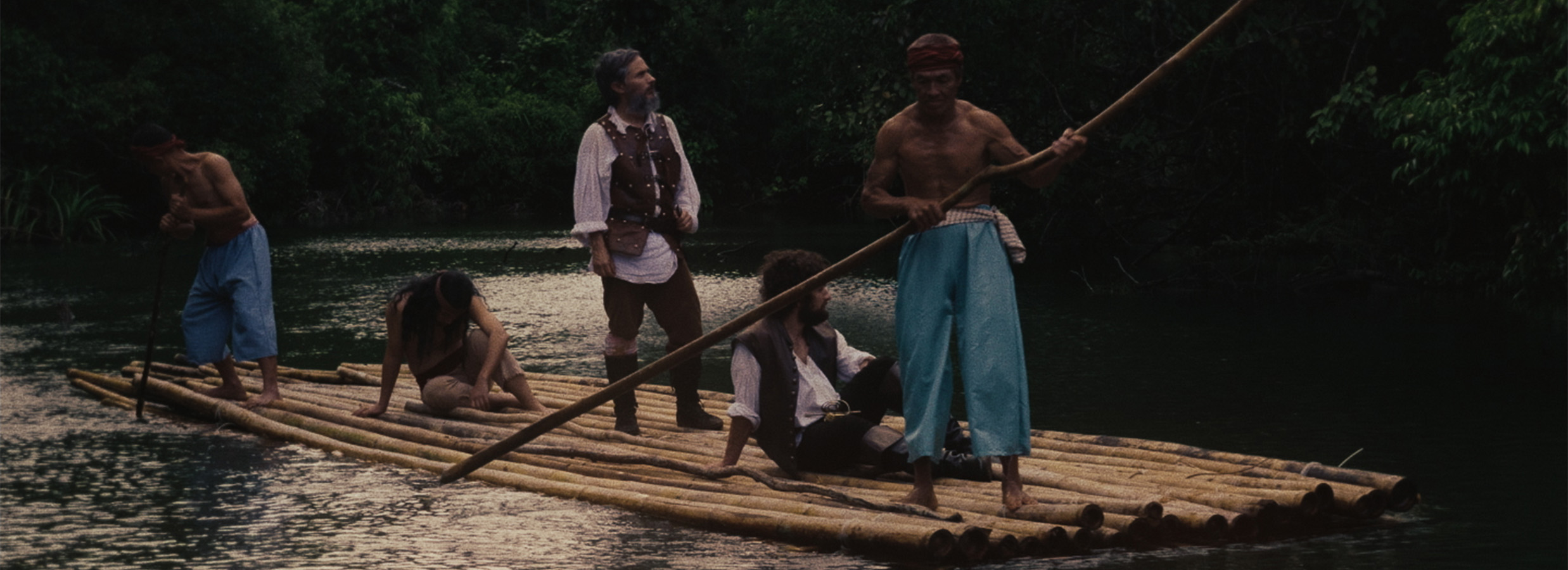
What are Magellan’s deepest motivations to embark on this epic journey? We learn nothing of this, other than his reading of documents that we cannot see, and we hear of the extraordinary difficulties of raising funds. But throughout all this, what are his emotions, his internal struggles in the dire situations that he finds himself in? We can see that he has to be brutal and cruel to maintain order and control mutinies aboard his ships, but we fail to see any change or arc in the character of Magellan from the beginning to the end. He remains immutable, hermetic and an unknown quantity.
Allusions and dream sequences, his muted love story, help to a certain degree. The most moving scene being a dream sequence on the galleon, where his wife, Maria Caldera Beatríz Barbosa (played by the lovely Ángela Azevedo), is lying beside him and she tells him that their son died shortly after being born and she had followed, only a few days later. This esoteric moment is very moving as we are painfully aware there is no way he could have known their true fate.
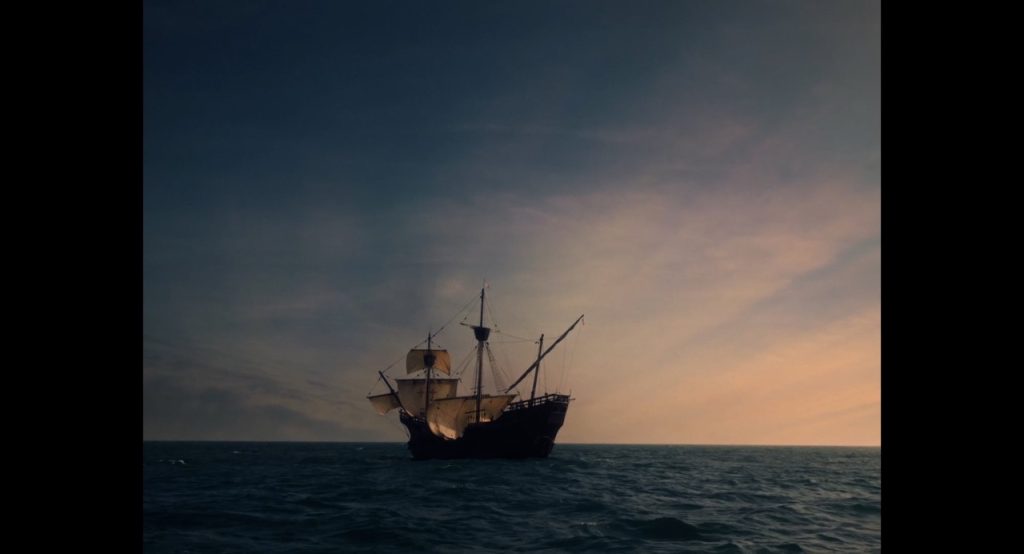
While Lav Diaz has clearly not dwelled on rounding his characters, that does not apply in the same degree that of slave Enrique (Amado Arjay Babon). He, being there from the start, ends up being, with Magellan, a constant figure in the story. Diaz could have considered telling the tale from Enrique’s point of view for it is his land that they return to.
Despite all attempts to convert Enrique to Christianity, he continues to lament his servitude, howling out into the wind whenever he has a chance, calling on his God to rescue him. He becomes the character that elicits the most empathy and is most definitely the most interesting and believable in the whole film, turning out to be wilier than his appearance belies, as he seeks his freedom at any cost.
Looking back on the production you begin to realize that the real theme underlying the story is political and social rather than historical. It is a strong critique on the harsh and cruel treatment that the Europeans meted out to the friendly indigenous people.
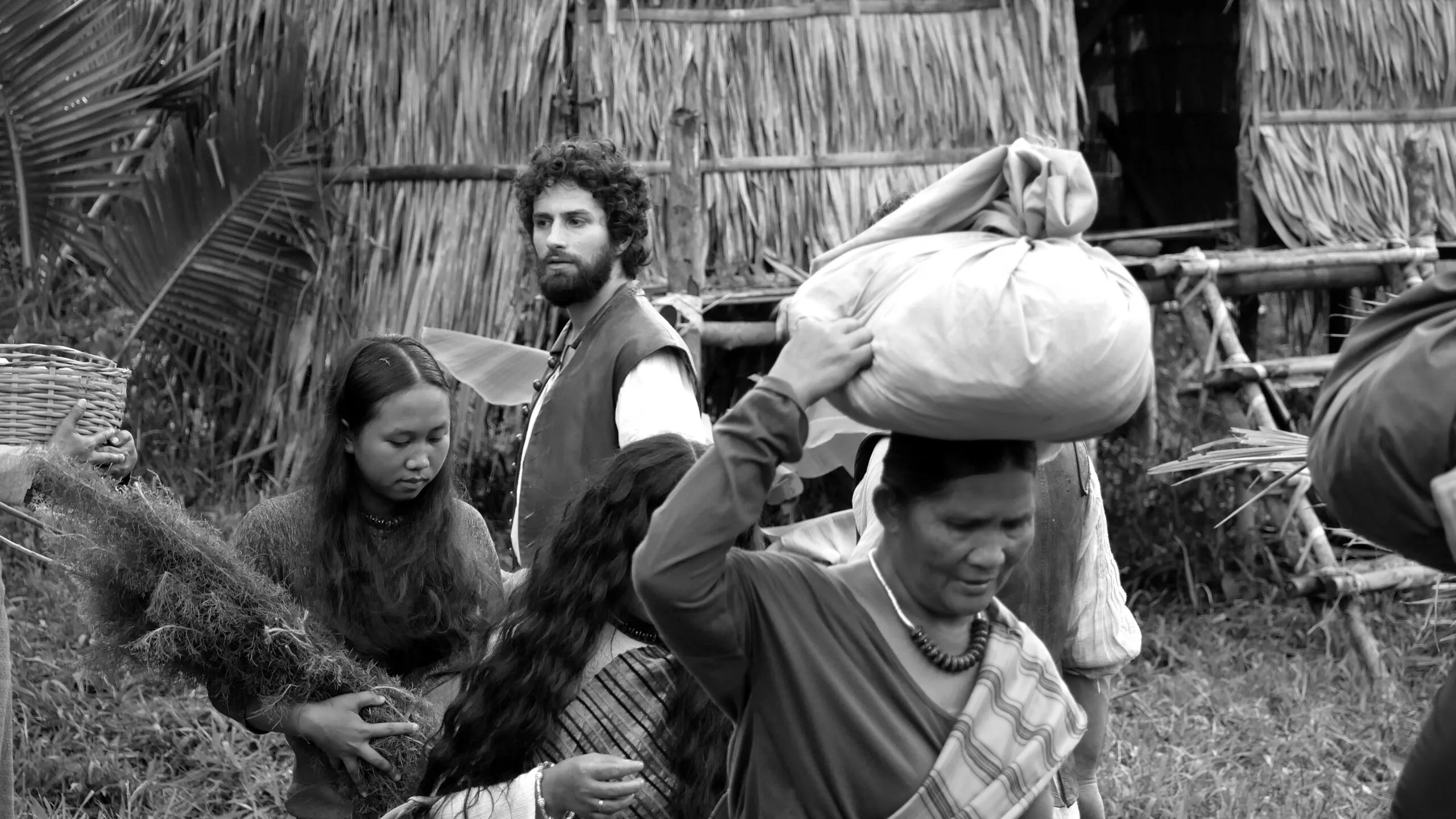
Villagers in Malacca
There are some historical inaccuracies, (explained under artistic licence), but they also add to the drama, such as the change of ‘Lapu Lapu’ from a real figure to a mythical vampiric wak-wak who preys on humans. Diaz suggests that the village Chief Rajah Humabon (Ronnie Lazaro) created the character in an attempt to stop the invaders continuing to forcefully convert his people to Christianity, literally by the sword, as they threaten them and burn their sacred effigies.
‘Magellan’ is being screened at the 2025 BFI London Film Festival Oct 11th and Oct 12th 2025.
MAGELLAN (2025)
Written & directed by Lav Diaz / Producers: Montse Triola, Mark Victor, Marta Vieira Alves/ Cinematography: Lav Dias and Artur Tort/ Editing: Lav Diaz and Artur Tort/ Scenography: Lav Diaz/Sound Designer: Jordi Ribas /
CAST: Gaël García Bernal aas Fernando Magellan (Fernão Magalhaães). Ângela Azevedo as maría Beatr![]() / Amado Arjay Babon as Enrique de Malacca/ Ronnie Lazaro as Rajah Himabon/ Hazel Orecio as Queen Juana/ Darío Yazbek Bernal as Duarte Barbosa (Gaël García Bernal’s half- brother)/ Roger Alan Kozaas Afonso De Albuquerque/ Baptiste Pintaux as Father Dela Reina.
/ Amado Arjay Babon as Enrique de Malacca/ Ronnie Lazaro as Rajah Himabon/ Hazel Orecio as Queen Juana/ Darío Yazbek Bernal as Duarte Barbosa (Gaël García Bernal’s half- brother)/ Roger Alan Kozaas Afonso De Albuquerque/ Baptiste Pintaux as Father Dela Reina.


